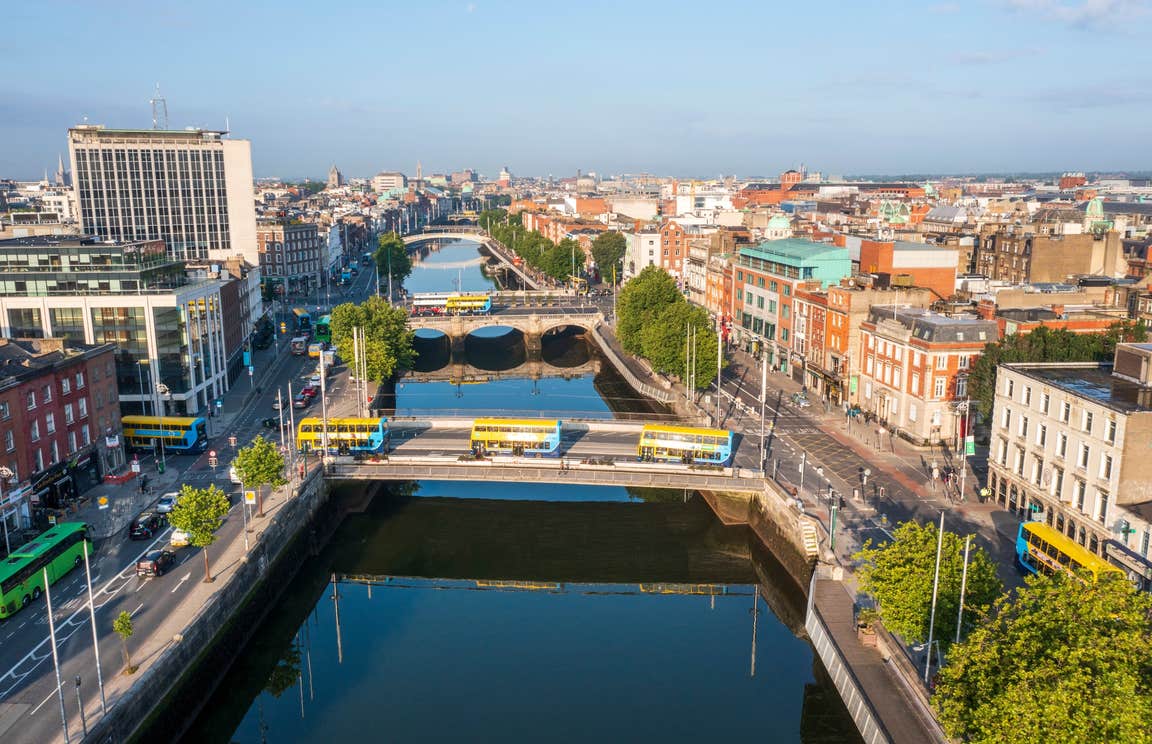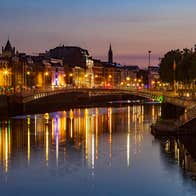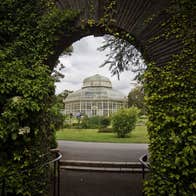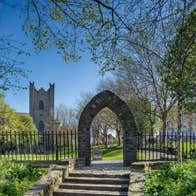Perhaps the most famous of them all, the Ha’penny Bridge is Dublin’s oldest pedestrian crossing. Built over two centuries ago, it takes its name from the original toll that was collected at turnstiles on either side. Nowadays it connects Bachelor’s Walk to Temple Bar, two of the city’s most vibrant areas when it comes to shopping, dining and people watching. While you’re out and about exploring, this cast iron beauty should be on your must see list.
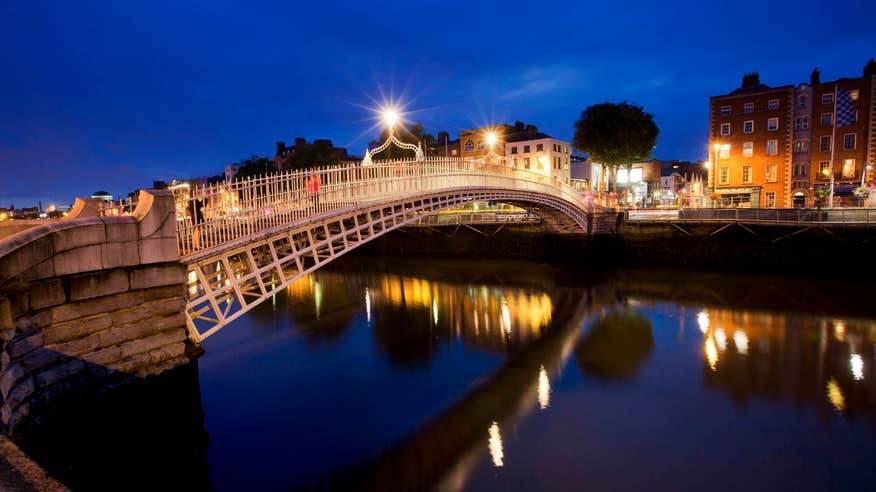
This bridge has served the city since 1688 and is known locally as the ‘old man of the river’. The present version was constructed between 1764 and 1766, making Mellows Bridge the longest surviving arc in Dublin. Virtually unchanged over the centuries, you can admire its three elegant arches from either the Liberties on the south side or Smithfield on the northern bank.
Dedicated to modernist Dublin writer Samuel Beckett, this contemporary stunner opened to the public in 2009. Crossing the river between the Convention Centre and Sir John Rogerson’s Quay, the sculptural design suggests the Irish national symbol of a harp. This is one of two sleek bridges in town designed by Spanish architect Santiago Calatrava, with the second being the James Joyce Bridge, a tribute to another literary giant.
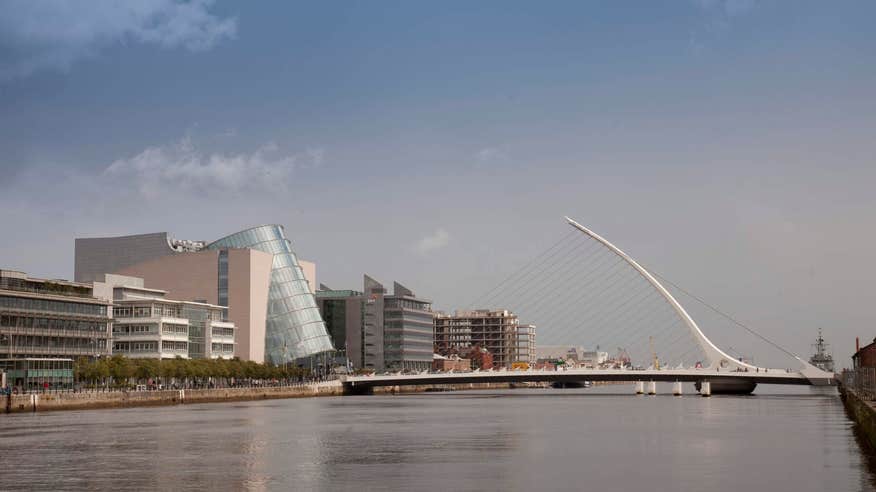
Seán Heuston was the youngest of the rebel leaders to be executed (at only 25 years of age) after the 1916 Rising. One of the many landmarks across the city named for figures of the rebellion, this unique latticed bridge is constructed of cast iron and is edged with gold painted crowns and wreaths. Just a five minute walk from Phoenix Park and Dublin Zoo, the National Museum of Ireland, Collins Barracks is also a short stroll away. Fittingly, the bridge is situated opposite Dublin’s largest railway station, also named after Heuston.
The newest addition to the list, this bridge opened in 2014 and is the first in the city to be named after a woman. Dubliner Rosie Hackett was a trade union activist and was also part of a rebel group that occupied St Stephen’s Green during the Easter Rising of 1916. The bridge, with its clean linear design, is a stone’s throw from the Abbey Theatre. Not only a useful crossing point for pedestrians, it also offers up a stunning view of the Liffey.
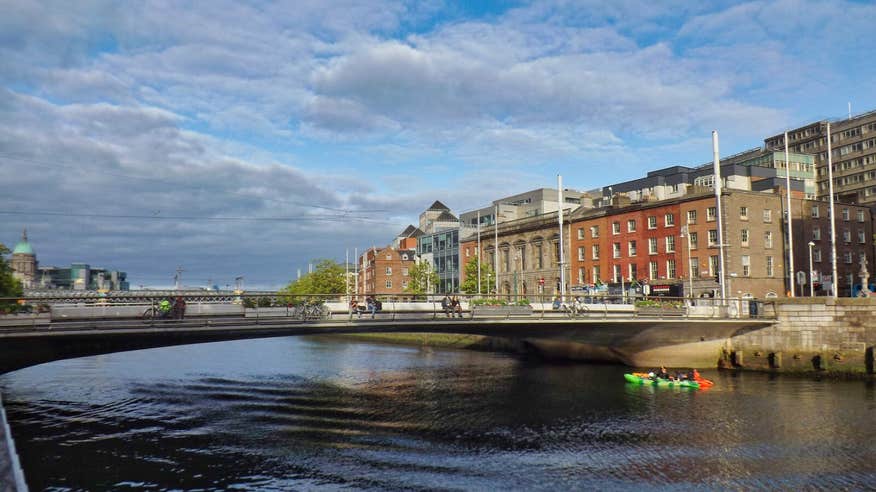
Since its opening day on December 20 1999, the Millennium Bridge has provided a quick and handy route for pedestrians between the cultural haven of Temple Bar and Dublin’s Italian Quarter. Winner of a design competition with 153 entries, the lightweight steel and concrete design provides a nice modern contrast to its more ornate neighbour, the Ha’penny. With the sister crossing being so close by, the Millennium Bridge is just the spot for full width pictures of the iconic older span and great selfies with a river view.
Dating back to 1794, this historic bridge complete with sandstone balustrades runs right through the centre of the city connecting O’Connell Street to Dublin’s Southside. The namesake of nationalist leader Daniel O’Connell, it’s the only traffic bridge in Europe wider than it is long. Stroll across the classically designed three arch span and check out the lamps on the central island. With their distinctive five lanterns, they’ve recently been restored to their full glory.
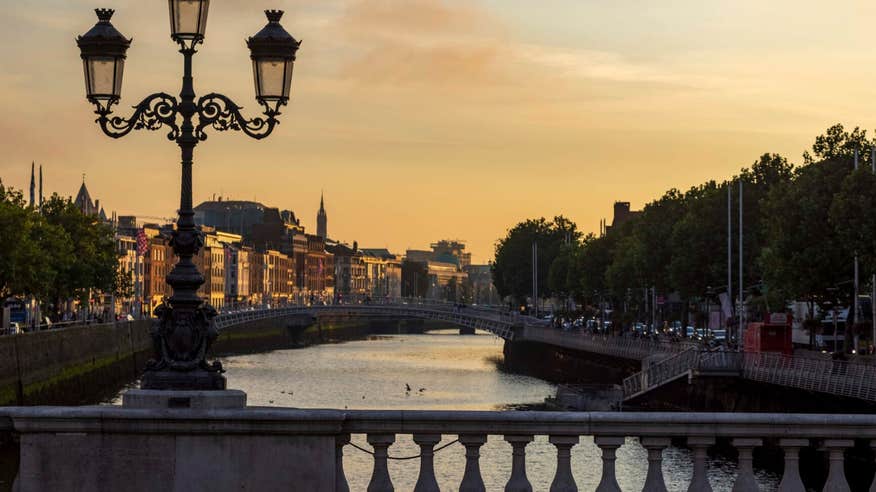
Plan your Dublin adventure today
For more inspiration on what to explore in the areas surrounding some of Dublin's most iconic bridges, find out more Things to Do and start planning your next trip to Dublin city.
